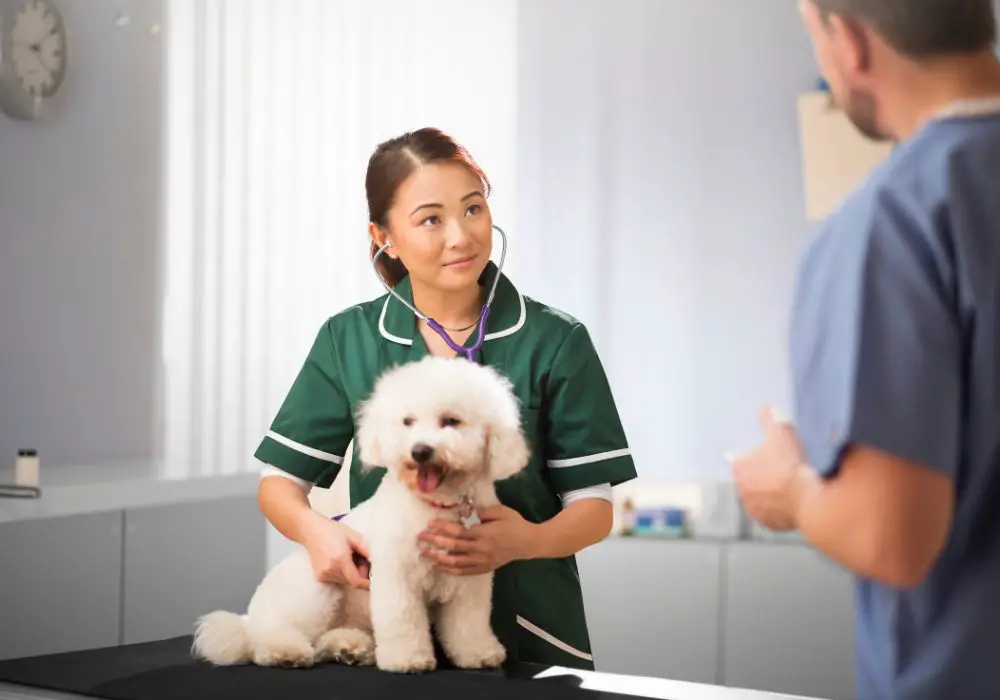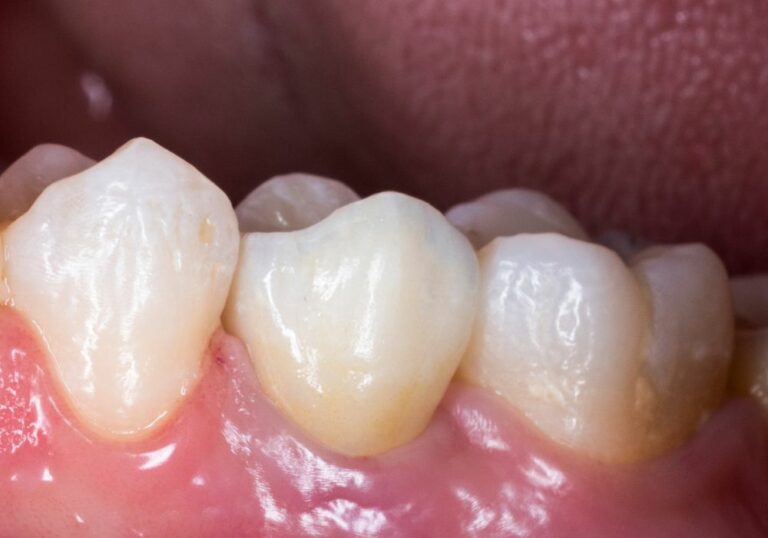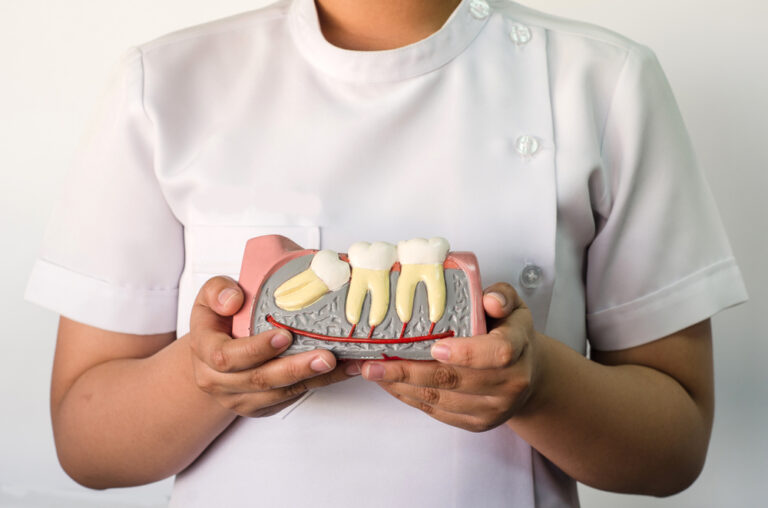Do puppies cry when their teeth hurt? As a new puppy owner, you may be wondering if your furry friend is in pain during the teething process. The answer is yes, most puppies will cry when their teeth hurt. The teething process is uncomfortable for pups, and it’s your job to help ease their discomfort.
During the teething process, puppies will experience pain and discomfort as their baby teeth fall out and adult teeth come in. This discomfort can cause them to cry, whine, and chew on anything they can get their teeth on. As a responsible owner, it’s important to recognize these signs and take action to help your puppy feel better. There are several things you can do to relieve your puppy’s pain, including providing them with frozen chew toys or chicken-flavored ice cubes to help numb the pain.
It’s important to note that while some discomfort is normal during teething, excessive crying or signs of distress may indicate a more serious issue. If you notice your puppy is experiencing severe pain or has difficulty eating or drinking, it’s important to consult with your veterinarian. With proper care and attention, you can help your puppy through the teething process and ensure they grow up healthy and happy.
Understanding Puppy Teeth Development
Teething Timeline
Puppy teeth development is an interesting process that usually begins when the puppies are around two to three weeks old, and it continues until they are six to eight months old. During this period, puppies will go through the following teething stages:
- Stage 1: Milk teeth eruption (2-3 weeks old) – During this stage, puppies will develop their milk teeth, also known as deciduous teeth. These teeth are temporary and will eventually fall out to make way for the permanent teeth.
- Stage 2: Milk teeth falling out (3-4 months old) – At this stage, puppies will begin to lose their milk teeth as their permanent teeth start to grow. This process can be uncomfortable for puppies, and they may experience some pain and discomfort.
- Stage 3: Permanent teeth eruption (4-6 months old) – During this stage, puppies will develop their permanent teeth, which will replace their milk teeth. The permanent teeth include incisors, canines, premolars, and molars.
Signs of Teething
As puppies go through the teething process, they may experience some discomfort and pain, which can cause them to cry or whine. Here are some signs that your puppy may be teething:
- Excessive chewing or nipping – Puppies may chew on objects to help alleviate the discomfort and pain associated with teething.
- Drooling – Puppies may drool more than usual during the teething process.
- Small blood spots on your dog’s toys – As puppies chew on objects, they may cause some bleeding in their gums, which can result in small blood spots on their toys.
- Red or swollen gums – Puppies may experience red or swollen gums during the teething process.
- Fever – In some cases, puppies may develop a fever during the teething process.
- Slower-than-normal eating – Puppies may eat slower than usual during the teething process.
- Crying or whining – Puppies may cry or whine more than usual during the teething process.
It’s important to note that while some discomfort and pain are normal during the teething process, excessive crying or whining may indicate a more serious issue, and you should consult your veterinarian if you have any concerns.
Do Puppies Cry When Their Teeth Hurt?

As a new puppy owner, you may be wondering if your furry friend is crying because of teething pain. The answer is yes, puppies do cry when their teeth hurt. Just like human babies, puppies go through a teething process that can be uncomfortable and painful.
During this time, puppies may experience symptoms such as drooling, chewing on objects, and crying or whining. They may also lose their appetite or have trouble sleeping. It’s important to note that not all puppies will exhibit these symptoms to the same degree, and some may not show any signs of discomfort at all.
To help ease your puppy’s teething pain, there are a few things you can do. Providing them with a frozen chew toy or some chicken-flavored ice cubes can help to numb the pain. It’s also important to make sure your puppy has plenty of safe chew toys to help relieve the pressure on their teeth.
If your puppy’s teeth are crooked or broken, it’s important to contact your veterinarian for advice and treatment. A professional may need to remove baby teeth that are stuck or otherwise preventing adult teeth from coming in.
Overall, it’s important to be patient and understanding during your puppy’s teething process. With the right care and attention, your furry friend will soon have a healthy set of adult teeth and be back to their happy, playful self.
How to Soothe a Teething Puppy
Teething is a natural process that all puppies go through. It can be a painful experience for them, and they may cry or whine more than usual. As a responsible pet owner, it’s important to know how to soothe your teething puppy. Here are some tips to help you:
Safe Chew Toys
Chewing is a natural behavior for dogs, especially when they’re teething. Providing your puppy with safe chew toys can help relieve their pain and prevent them from chewing on inappropriate objects. Look for chew toys made from durable materials that won’t break apart and cause a choking hazard. Some good options include:
- Rubber toys
- Nylon bones
- Kongs
- Dental chews
Make sure to supervise your puppy when they’re chewing to ensure they don’t swallow any pieces.
Cold Treats
Cold treats can help numb your puppy’s gums and provide relief from teething pain. You can try giving them some chicken-flavored ice cubes or frozen chew toys. Another option is to wet a dishrag or towel and freeze it for a couple of hours. Once frozen, give it to your puppy to chew on. The cold temperature will help soothe their gums, and the texture of the towel will promote proper biting behavior.
Gentle Massage
Massaging your puppy’s gums can help alleviate their discomfort. Use your fingers to gently rub their gums in a circular motion. You can also try using a damp washcloth or a soft-bristled toothbrush to massage their gums. Be gentle and don’t apply too much pressure, as this can cause more pain.
In summary, soothing a teething puppy requires patience and understanding. Providing them with safe chew toys, cold treats, and gentle massages can help relieve their pain and make the process more manageable. Remember to always supervise your puppy when they’re chewing and seek veterinary care if you notice any signs of excessive pain or discomfort.
When to Consult a Vet

If your puppy is experiencing teething pain, there are a few signs to look out for that may indicate it’s time to consult a vet. Here are some things to keep an eye on:
Persistent Crying
It’s normal for puppies to cry or whine when they are teething, but if the crying persists for an extended period, it may be a sign of a more severe issue. If your puppy is crying for more than a day or two, it’s best to schedule an appointment with your veterinarian to ensure there isn’t an underlying problem.
Refusal to Eat
If your puppy is refusing to eat or drink, it could be a sign that their teeth are causing them significant pain. Puppies need to eat and drink to stay healthy and grow, so if your puppy is refusing to do so, it’s essential to seek veterinary care right away.
Bleeding Gums
A little bit of blood on your puppy’s chew toys is normal when they are teething, but if you notice significant bleeding or your puppy’s gums look inflamed, it’s time to call your vet. Bleeding gums can indicate an infection or other dental issue that needs to be addressed promptly.
Remember, your vet is there to help you and your puppy through the teething process. If you notice any of these signs, don’t hesitate to schedule an appointment to ensure your puppy is healthy and happy.
Frequently Asked Questions
How can I ease my puppy’s teething pain?
Teething can be a painful experience for puppies. To ease their discomfort, you can give them chew toys or frozen treats to chew on. You can also massage their gums with a clean finger or a damp cloth. If your puppy is in a lot of pain, you can talk to your veterinarian about pain relief options.
What are some home remedies for teething puppies?
There are several home remedies that can help ease your puppy’s teething pain. You can freeze a clean washcloth and give it to your puppy to chew on. You can also freeze some broth or yogurt in an ice cube tray and give your puppy the frozen treats to chew on. Another home remedy is to mix some water and chicken broth and freeze it in a Kong toy.
When do puppies teeth the worst?
Puppies usually start teething at around 3-4 months of age and continue until they are around 7-8 months old. During this time, they may experience the worst of their teething pain. However, every puppy is different, and some may experience more pain than others.
How do I know if my puppy is in pain from teething?
If your puppy is in pain from teething, they may show some signs of discomfort. They may chew on things more than usual, drool excessively, or have swollen or bleeding gums. They may also be more irritable or restless than usual. If you are concerned about your puppy’s teething pain, you should talk to your veterinarian.
How do puppies act when they are teething?
Puppies may act differently when they are teething. They may be more restless or irritable than usual, and they may chew on things more than usual. They may also drool excessively or have swollen or bleeding gums. However, every puppy is different, and some may not show any signs of discomfort.
Do puppies cry when they get hurt?
Puppies may cry when they get hurt, but it is not always the case. Some puppies may be more stoic than others and may not cry even if they are in pain. If you are concerned about your puppy’s health, you should talk to your veterinarian.







